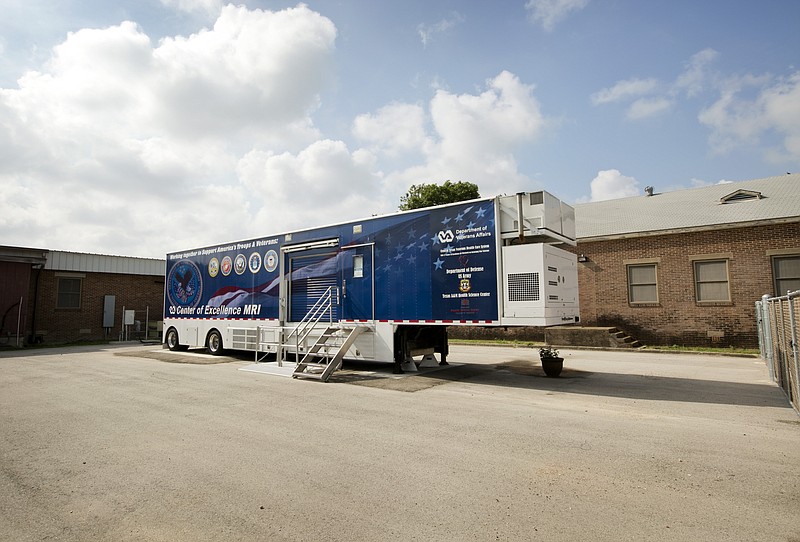AUSTIN-The $3.6 million machine was supposed to revolutionize our understanding of traumatic brain injury and other war injuries by studying the brains of Fort Hood troops before and after deployments to Iraq.
The Austin American-Statesman reports that never happened.
Nearly a decade after the Department of Veterans Affairs bought the once cutting-edge, mobile MRI system, internal investigators have concluded that research efforts at the VA Waco Center of Excellence represented "a waste of taxpayers' funds" and were an example of "poor stewardship."
In a report released Thursday, the VA's Office of Inspector General detailed years of research inactivity at the Waco center, where officials spent more than $200,000 in annual maintenance while the MRI machine largely sat unused.
The internal inspectors' report confirmed the findings of a 2014 American-Statesman investigation, which found the VA had squandered a historic opportunity for combat-related research by purchasing the mobile scanner without a clear plan for success, failing to recruit enough brain imaging experts to make it work and allowing internal squabbles to paralyze the project.
VA inspectors found the agency spent about $1.1 million on maintenance for the nearly five and a half years that the machine went unused between 2008 and 2015.
Inspectors confirmed that the scanner had not contributed to any published research studies as of 2015.
The report, however, didn't assign blame to any specific VA employees for the debacle. The VA has since hired new leadership at the center and in April 2015 restarted brain scanning research with the machine.
In a response to the inspectors' findings, VA Undersecretary of Health David Shulkin conceded that the machine was "underutilized" in the past, but that the department was "proud that our efforts have been successful in turning this program around in a relatively short period of time."
Shulkin said the VA has started a redesign of the entire VA supply chain and changed how it manages such high-tech medical equipment as the Waco MRI system.
"Although this device has had a troubled history, I view this overall as a success story, in that new leadership has revitalized this program and put the Center on a productive pathway," Shulkin wrote.
The Statesman investigation, published in September 2014, found that six years after the brain scanner's debut not a single study based on the machine's scans had been published.
By 2013, center officials suggested that the machine be returned because the VA didn't know how to properly use or fix it. One suggestion from staffers for the MRI's support vehicle: housing for lab rats.
After the Statesman investigation was published, the U.S. House Veterans' Affairs Committee launched its own inquiry into the VA's overall mental health research effort.
Committee officials said Thursday afternoon that investigation into overall research is ongoing.
Former committee member Rep. Bill Flores, R-Bryan, who previously suggested that research should be moved out of the Center of Excellence, told the Statesman last year he had changed his view after visiting the revitalized center.
The Waco MRI system is currently being used to research neurological disorders and collect data for treatment studies, VA spokeswoman Jessica Jacobsen said Thursday. The Waco center has also started collaborating with the University of Texas to evaluate patients and provide them with real-time feedback on their neurological activity, Jacobsen said.

